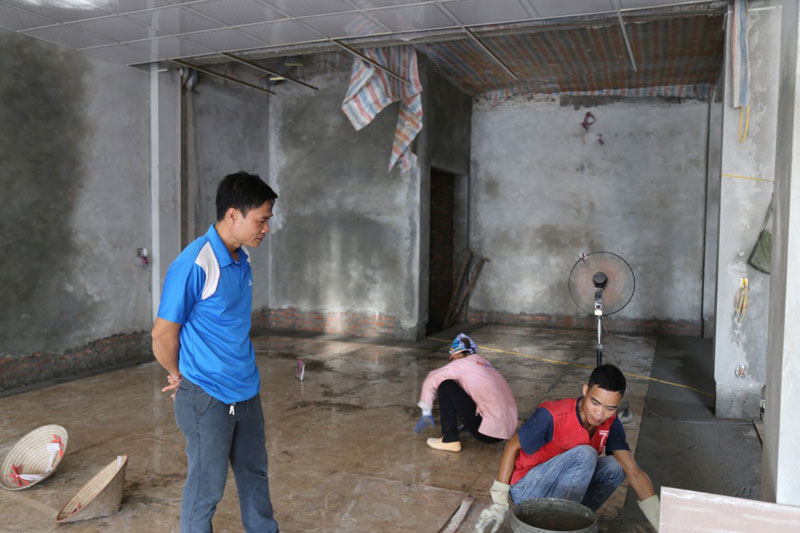


In addition to raising fish, taking advantage
of the water surface, Mr. Hong’s family invested in raising ducks, pigs to
increase the income. Currently, on average each year, Mr. Hong's family
collected the income of 150 million VND from the fishponds and livestock after
deducting expenses and creating jobs for 5 local workers.

Mr. Dinh Quoc Hong regularly directs and
guides the workers on the construction site.
In recent years, realizing that the area of
agricultural land has become narrower, the agricultural production has been
more difficult, especially due to environmental pollutions, his family’s fish
ponds are affected, the output for commercial fish is not favorable, Mr. Hong
thinks of changing the industry to keep up with the current trend. He recalled
his previous time of working as a construction worker, accumulating experience
and capital, in 2015, Mr. Hong decided to buy construction machines and set up
a Construction Team to receive civil works serving people in the locality. Mr
Hong said: My construction team is mostly local agricultural laborers. When I
founded, I had to learn a lot about management and machinery. Besides, I also
looked for skilled workers to work as masters and to train other members in the
group.
Up to now, through two years of maintenance,
with the motto of high prestige, the construction team has maintained the job
for nearly 20 members, the average income of a person per year is above 60
million VND. Through the operation, the prestige of the Construction Team has
been raised, from the small civil works to ensure quality and be on schedule,
Mr. Hong’s team has received many large projects such as constructions of
office buildings, restaurants, medium-sized supermarkets, so the average annual
income of team members has increased. From an initial construction team, he has
formed four more construction teams with more than 40 members and developed to
the surrounding districts, such as Cao Phong, Da Bac, Kim Boi, etc. At the peak,
his team has 60 - 70 employees working regularly, the average income is 5
million VND per person per month.